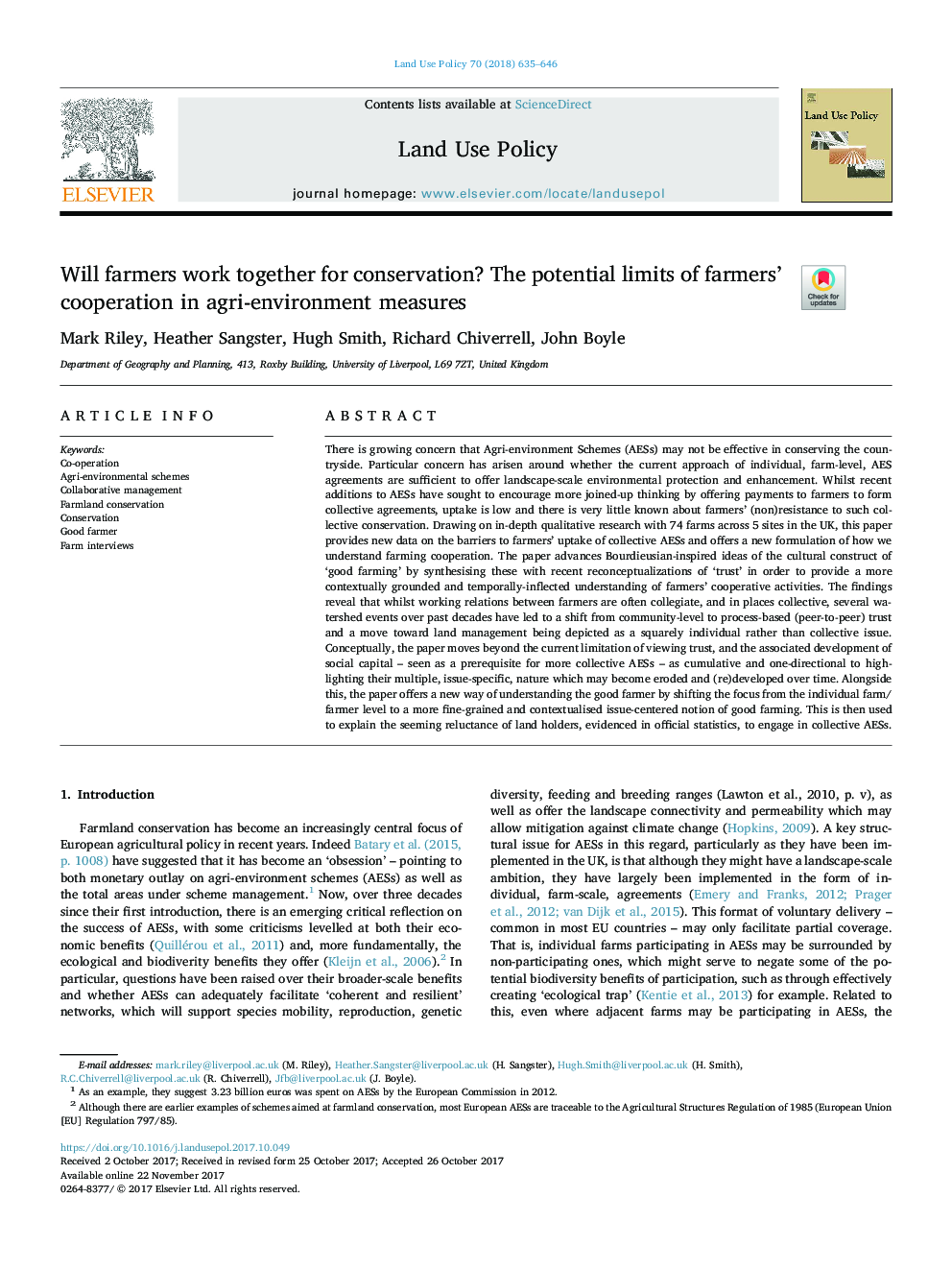| کد مقاله | کد نشریه | سال انتشار | مقاله انگلیسی | نسخه تمام متن |
|---|---|---|---|---|
| 6546823 | 1421813 | 2018 | 12 صفحه PDF | دانلود رایگان |
عنوان انگلیسی مقاله ISI
Will farmers work together for conservation? The potential limits of farmers' cooperation in agri-environment measures
ترجمه فارسی عنوان
آیا کشاورزان برای حفاظت با هم کار می کنند؟ محدودیت های بالقوه همکاری کشاورزان در اقدامات کشاورزی-محیطی
دانلود مقاله + سفارش ترجمه
دانلود مقاله ISI انگلیسی
رایگان برای ایرانیان
کلمات کلیدی
همکاری، طرح های زراعی محیطی، مدیریت همکاری، حفاظت از زمین های کشاورزی، حفاظت، کشاورز خوب مصاحبه های مزرعه،
موضوعات مرتبط
علوم زیستی و بیوفناوری
علوم کشاورزی و بیولوژیک
جنگلداری
چکیده انگلیسی
There is growing concern that Agri-environment Schemes (AESs) may not be effective in conserving the countryside. Particular concern has arisen around whether the current approach of individual, farm-level, AES agreements are sufficient to offer landscape-scale environmental protection and enhancement. Whilst recent additions to AESs have sought to encourage more joined-up thinking by offering payments to farmers to form collective agreements, uptake is low and there is very little known about farmers' (non)resistance to such collective conservation. Drawing on in-depth qualitative research with 74 farms across 5 sites in the UK, this paper provides new data on the barriers to farmers' uptake of collective AESs and offers a new formulation of how we understand farming cooperation. The paper advances Bourdieusian-inspired ideas of the cultural construct of 'good farming' by synthesising these with recent reconceptualizations of 'trust' in order to provide a more contextually grounded and temporally-inflected understanding of farmers' cooperative activities. The findings reveal that whilst working relations between farmers are often collegiate, and in places collective, several watershed events over past decades have led to a shift from community-level to process-based (peer-to-peer) trust and a move toward land management being depicted as a squarely individual rather than collective issue. Conceptually, the paper moves beyond the current limitation of viewing trust, and the associated development of social capital - seen as a prerequisite for more collective AESs - as cumulative and one-directional to highlighting their multiple, issue-specific, nature which may become eroded and (re)developed over time. Alongside this, the paper offers a new way of understanding the good farmer by shifting the focus from the individual farm/farmer level to a more fine-grained and contextualised issue-centered notion of good farming. This is then used to explain the seeming reluctance of land holders, evidenced in official statistics, to engage in collective AESs.
ناشر
Database: Elsevier - ScienceDirect (ساینس دایرکت)
Journal: Land Use Policy - Volume 70, January 2018, Pages 635-646
Journal: Land Use Policy - Volume 70, January 2018, Pages 635-646
نویسندگان
Mark Riley, Heather Sangster, Hugh Smith, Richard Chiverrell, John Boyle,
